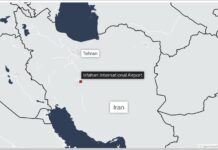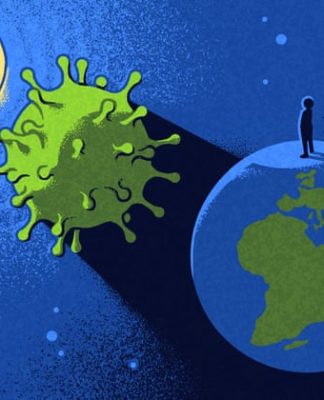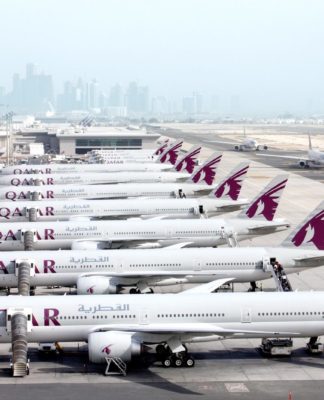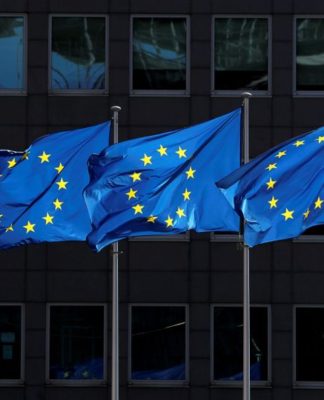This crisis is a chance to rebuild our economy for the good of humanity. Let’s bail out the living world, not its destroyers
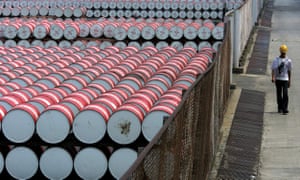
Do Not Resuscitate. This tag should be attached to the oil, airline and car industries. Governments should provide financial support to company workers while refashioning the economy to provide new jobs in different sectors. They should prop up only those sectors that will help secure the survival of humanity and the rest of the living world.
They should either buy up the dirty industries and turn them towards clean technologies, or do what they often call for but never really want: let the market decide. In other words, allow these companies to fail.
This is our second great chance to do things differently. It could be our last. The first, in 2008, was spectacularly squandered. Vast amounts of public money were spent reassembling the filthy old economy, while ensuring that wealth remained in the hands of the rich. Today, many governments appear determined to repeat that catastrophic mistake.
The “free market” has always been a product of government policy. If antitrust laws are weak, a few behemoths survive while everyone else goes down. If dirty industries are tightly regulated, clean ones flourish. If not, the corner-cutters win. But the dependency of enterprises on public policy has seldom been greater in capitalist nations than it is today. Many major industries are now entirely beholden to the state for their survival. Governments have the oil industry over a barrel – hundreds of millions of unsaleable barrels, to be more precise – just as they had the banks over a barrel in 2008. Then, they failed to use their power to eradicate the sector’s socially destructive practices and rebuild it around human needs. They are making the same mistake today.
The Bank of England has decided to buy debt from oil companies such as BP, Shell and Total. The government has given easyJet a £600m loan even though, just a few weeks ago, the company frittered away £171m in dividends: profit is privatised, risk is socialised. In the US, the first bailout includes $60bn (£48bn) for airlines. Overall, the bailout involves sucking as much oil as possible into strategic petroleum reserves and sweeping away pollution laws, while freezing out renewable energy. Several European countries are seeking to rescue their airlines and car manufacturers.
Don’t believe them when they tell you they do this on our behalf. A recent survey by Ipsos of 14 countries suggests that, on average, 65% of people want climate change to be prioritised in the economic recovery. Everywhere, electorates must struggle to persuade governments to act in the interests of the people, rather than the corporations and billionaires who fund and lobby them. The perennial democratic challenge is to break the bonds between politicians and the economic sectors they should be regulating, or, in this case, closing down.
Even when legislators seek to represent these concerns, their efforts are often feeble and naive. The recent letter to the government from a cross-party group of MPs calling for airlines to receive a bailout only if they “do more to tackle the climate crisis” could have been written in 1990. Air travel is inherently polluting. There are no realistic measures that could, even in the medium term, make a significant difference. We now know that the carbon offsetting schemes the MPs call for is useless: every economic sector needs to maximise cuts in greenhouse gases, so shifting the responsibility from one sector to another solves nothing. The only meaningful reform is fewer flights. Anything that impedes the contraction of the aviation industry impedes the reduction of its impacts.
The current crisis gives us a glimpse of how much we need to do to pull out of our disastrous trajectory. Despite the vast changes we have made in our lives, global carbon dioxide emissions are likely to reduce by only about 5.5% this year. A UN report shows that to stand a reasonable chance of avoiding 1.5C or more of global heating, we need to cut emissions by 7.6% per year for the next decade. In other words, the lockdown exposes the limits of individual action. Travelling less helps, but not enough. To make the necessary cuts we need structural change. This means an entirely new industrial policy, created and guided by government.
Governments like the UK’s should drop their road-building plans. Instead of expanding airports, they should publish plans for reducing landing slots. They should commit to an explicit policy of leaving fossil fuels in the ground.
During the pandemic, many of us have begun to discover how much of our travel is unnecessary. Governments can build on this to create plans for reducing the need to move, while investing in walking, cycling and – when physical distancing is less necessary – public transport. This means wider pavements, better cycle lanes, buses run for service not profit. They should invest heavily in green energy, and even more heavily in reducing energy demand – through, for example, home insulation and better heating and lighting. The pandemic exposes the need for better neighbourhood design, with less public space given to cars and more to people. It also shows how badly we need the kind of security that a lightly taxed, deregulated economy cannot deliver.
In other words, let’s have what many people were calling for long before this disaster hit: a green new deal. But please let’s stop describing it as a stimulus package. We have stimulated consumption too much over the past century, which is why we face environmental disaster. Let us call it a survival package, whose purpose is to provide incomes, distribute wealth and avoid catastrophe, without stoking perpetual economic growth. Bail out the people, not the corporations. Bail out the living world, not its destroyers. Let’s not waste our second chance.
- George Monbiot is a Guardian columnist
News is under threat …
… just when we need it the most. Millions of readers around the world are flocking to the Guardian in search of honest, authoritative, fact-based reporting that can help them understand the biggest challenge we have faced in our lifetime. But at this crucial moment, news organisations are facing an unprecedented existential challenge. As businesses everywhere feel the pinch, the advertising revenue that has long helped sustain our journalism continues to plummet. We need your help to fill the gap.
You’ve read 14 articles in the last six months. We believe every one of us deserves equal access to vital public service journalism. So, unlike many others, we made a different choice: to keep Guardian journalism open for all, regardless of where they live or what they can afford to pay. This would not be possible without financial contributions from those who can afford to pay, who now support our work from 180 countries around the world.
We have upheld our editorial independence in the face of the disintegration of traditional media – with social platforms giving rise to misinformation, the seemingly unstoppable rise of big tech and independent voices being squashed by commercial ownership. The Guardian’s independence means we can set our own agenda and voice our own opinions. Our journalism is free from commercial and political bias – never influenced by billionaire owners or shareholders. This makes us different. It means we can challenge the powerful without fear and give a voice to those less heard.
Reader financial support has meant we can keep investigating, disentangling and interrogating. It has protected our independence, which has never been so critical. We are so grateful.
We need your support so we can keep delivering quality journalism that’s open and independent. And that is here for the long term. Every reader contribution, however big or small, is so valuable. Support the Guardian from as little as CA$1 – and it only takes a minute. Thank you.





